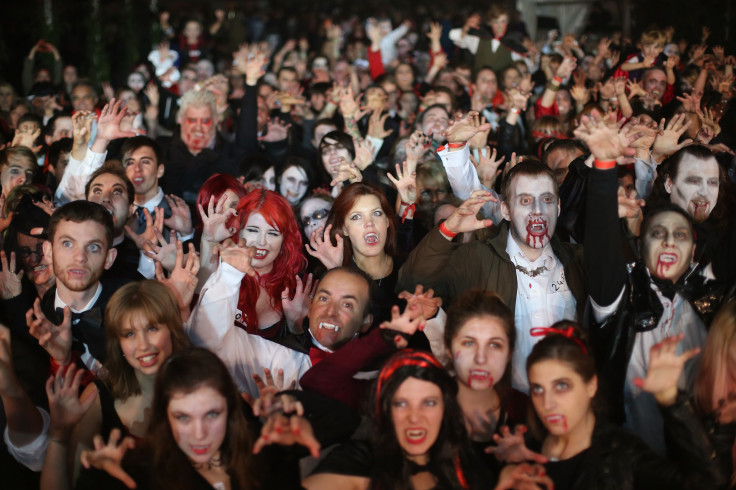'Real Vampires' Are Among Us, But These Self-Identified Denizens Of The Night Hate Going To Doctors

There are self-identified vampires living among us and that shouldn't be too surprising. "Twilight," "True Blood" and decades in the cultural spotlight have led to plenty of stereotypes and a stigma attached to this alternative identity, according to a new study. In many ways, our preconceived notions about vampires have led to this self-identified group avoiding doctors and possibly avoiding professional help when needed.
It may be hard to keep an open mind when it involves a self-identified vampire, but that's something you have to do if you're a doctor, counselor or social worker. A lot of people probably assume they are younger kids or young people who watch ‘Twilight’ or other pop-culture types of things. Yet, the real vampire community, which is self-defined by people who claim the need for extra energy (either blood or psychic energy), tend not to fit that demographic stereotype," DJ Williams, an associate professor of social work at Idaho State University and co-author of the study, said in a statement.
Williams and Emily Prior, of the Center for Positive Sexuality in Los Angeles, interviewed self-identified vampires and pulled from previous research on this alternative identity group for the study. Some of the individuals wear specific clothing, wear fangs and sleep in coffins. There is also a spiritual aspect to this practice, with some belonging to something they consider a "Vampire Church." There also needs to be a distinction in regards to "lifestyle" and "real" vampires, the latter of which needs to feed using a consenting donor.
"Real vampires report that without occasional feeding, their overall health and well-being suffer. Hence, the term vampirism is used to describe the feeding process. Real vampires may or may not be interested in mythical vampires or pop culture vampirism; these seem to be irrelevant to their self-identified vampirism (Laycock, 2010)," Williams and Prior explained in the study. Real vampires believe they were born with the condition.
Williams and Prior wanted to determine the relationship self-identified vampires had with clinicians, and whether they discussed their alternative identity. The 11 participants were fearful of revealing their identity. "People with real vampire identities, at least those within this sample, are fearful that clinicians will label them as being psychopathological in some way (delusional, immature, unstable), perhaps wicked, and not competent to perform in typical social roles, such as parenting," the authors concluded.
While the study focused on self-identified vampires, there could be broader implications for the research. "People of all kinds sometimes struggle with relationship issues or have a death in the family or struggle with career and job-type issues. Some of these people with alternate identities may come to a therapist with these issues, and if clinicians are open and educated about this group, they should be able to help the individual much better," Williams said in a statement. Perhaps, most important, the researchers note that so-called vampires are just like us and experience the same stresses and joys of everyday life.
The study, "Do We Always Practice What We Preach? Real Vampires’ Fears of Coming Out of the Coffin to Social Workers and Helping Professionals," was published in the journal Critical Social Work.
© Copyright IBTimes 2024. All rights reserved.










